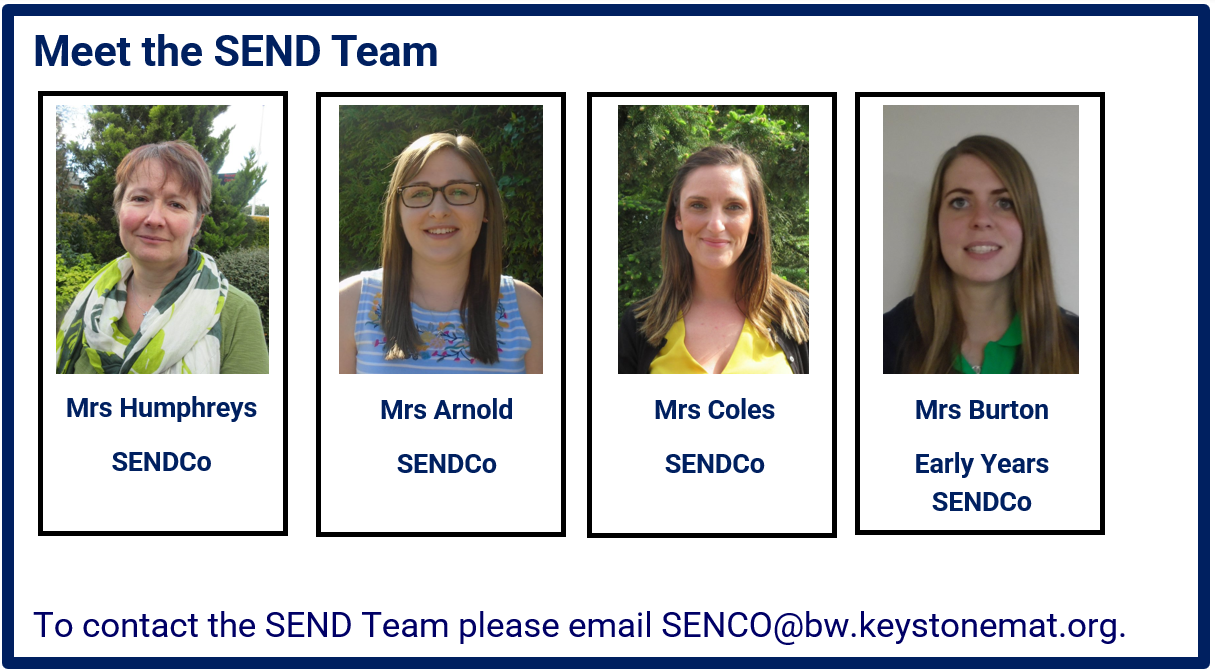
What is SEND?
SEND is Special Educational Needs and Disability. A child with SEND is understood to have either a learning difficulty or a disability and the child requires special educational provision which is additional to and different from that generally made for other children of the same age within a mainstream school.
Please see below our SEND Policy, Information Report & Provision Overview:
SEND Policy
SEN Information Report
Children with Health Needs who Cannot Attend School Policy
SEND Newsletters
Autumn 2025 SEND Newsletter
Summer 2025 SEND Newsletter
Spring 2025 SEND Newsletter
Autumn 2024 SEND Newsletter
Summer 2024 SEND Newsletter
Spring 2024 SEND Newsletter
Lincolnshire Children's Therapy Services
Click on this link for details of their free online sessions. Each session will provide information, advice and techniques on how to help you better understand sensory processing and how to support your child: Sensory Processing Differences Webinar
Toileting Support
ERIC is the national charity dedicated to improving children's bowel and bladder health. Their website can be found here: ERIC
Click on the following links for further useful resources: Advice About Bladders, Bowels & Toileting, Toileting Visual Schedule, Going to the Toilet Social Story, Autism Education Trust Toileting Toolkit, Toilet Training Progress Sticker Reward Chart
ADHD Lincs
A handout from the ADHD Lincs parent workshop held at Westfield on 14th March can be found here: ADHD Lincs Parent Workshop. The latest news from ADHD Lincs can be found here: ADHD Lincs February Newsletter
Working Together Team
The Working Together Team is a National Autistic Society Advanced Status Accredited Service. They advocate best practice and provide specialist support to empower mainstream settings to ensure autistic children & young people thrive through collaborative working with families and professionals. Click on this link for further information: WTT Information Flyer. Details of their training workshops for 2024-2025 can be found here: WTT Team Training 2025-2026
Autism and Christmas
Click on the following links for some useful resources: December calendar 2023, Getting It Right For Me, Receiving a Gift Prompt Cards, Social Stories
Lincolnshire Parent Carer Forum
The latest news and workshop information from LPCF can be found here: LPCF Information & Workshops LPCF Newsletter March 2025
Lincolnshire Psychology Services
Here is the recording from the workshop on behaviour that Dr Lise Griffiths delivered on 18th May: LPS Parenting Workshop - Managing Challenging Behaviour After School
Here is the second session that Dr Griffiths delievered on Thursday 22nd June on Understanding and Managing Sensory Needs and Challenges: Understanding and Managing Sensory Needs and Challenges
Bourne2Shine
Click on these links for the latest newletters from Bourne2Shine: June 2024 Newsletter May 2024 Newsletter
Liaise
Click on this link for contact information for the Liaise SEND Information Advice and Support Service in Lincolnshire: Liaise contact details
Family Lives
Family Lives offers a confidential and free helpline service for families in England and Wales (previously known as Parentline). They can be contacted on 0808 800 2222 for emotional support, information, advice and guidance on any aspect of parenting and family life. Their website is also a rich source of useful support and advice: Family Lives website
Family Lives also offer a range of free online parenting courses: Family Lives parenting courses
Click on the images below for further support, reading and resources:
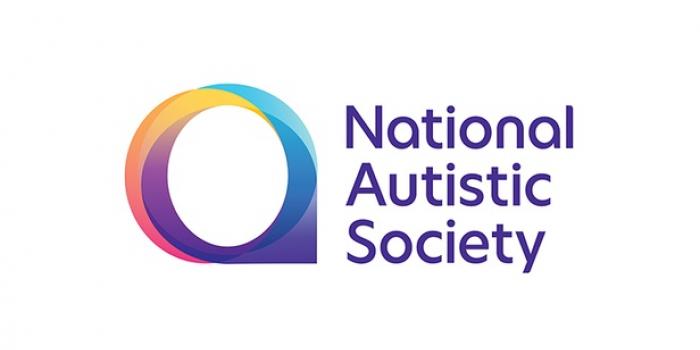
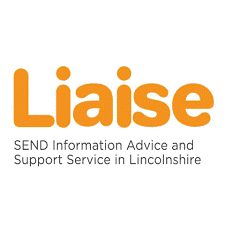
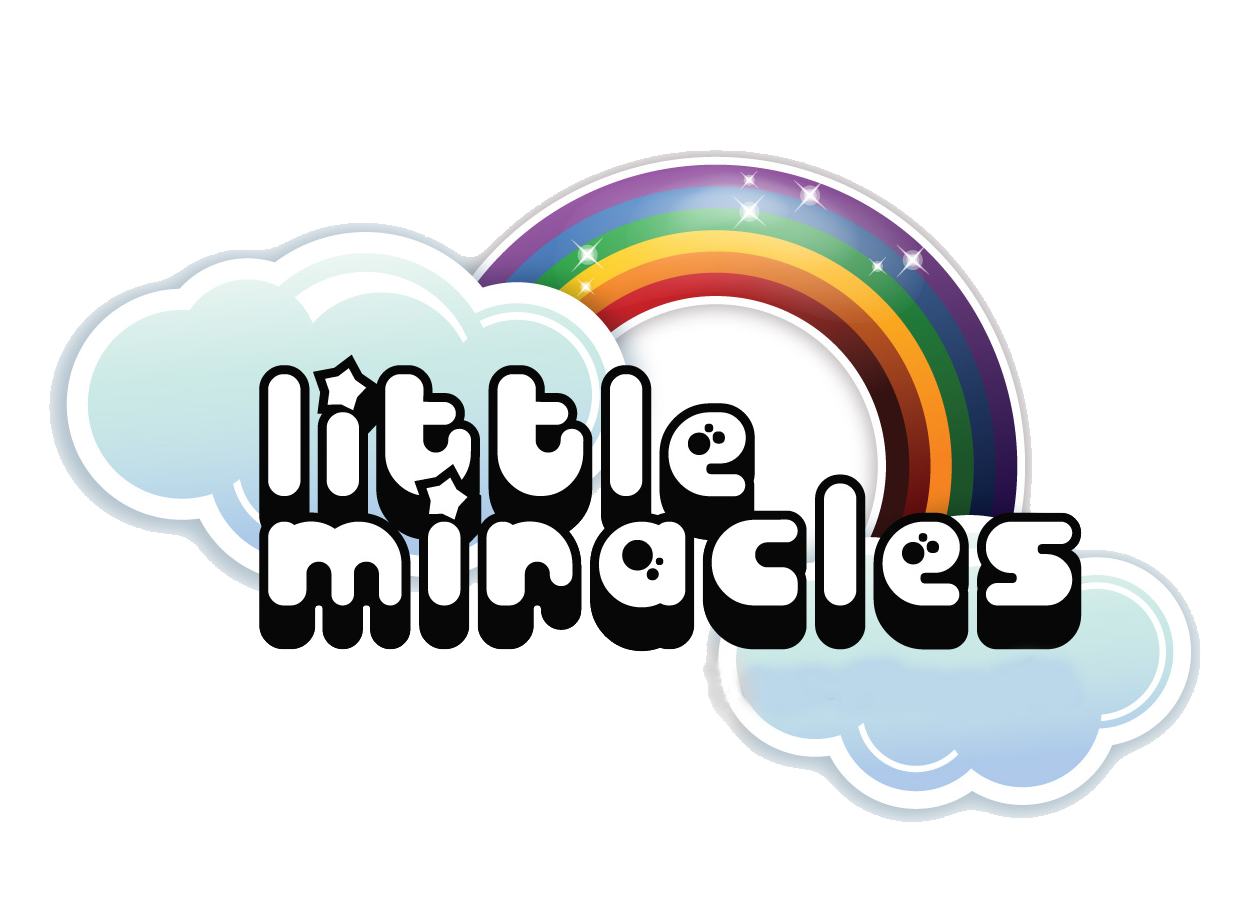
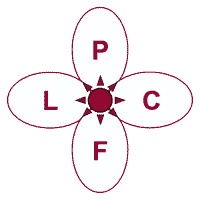


.JPG)
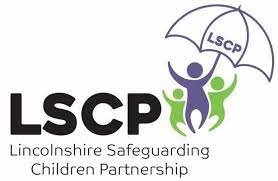
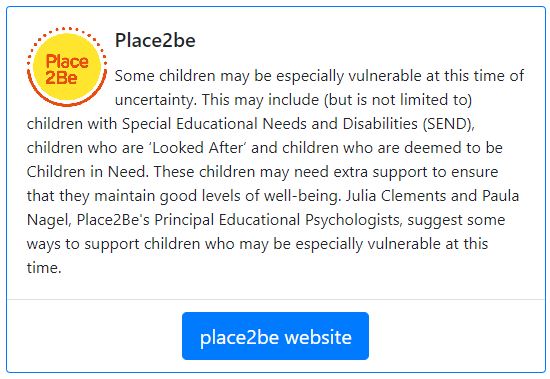
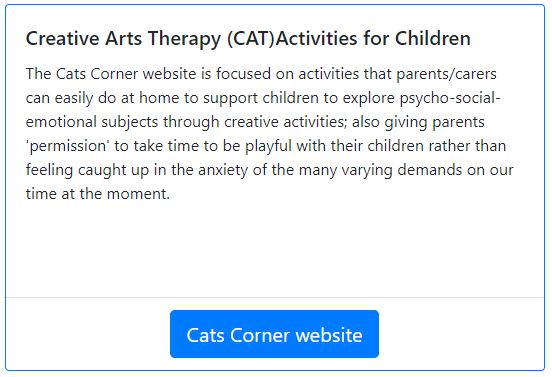
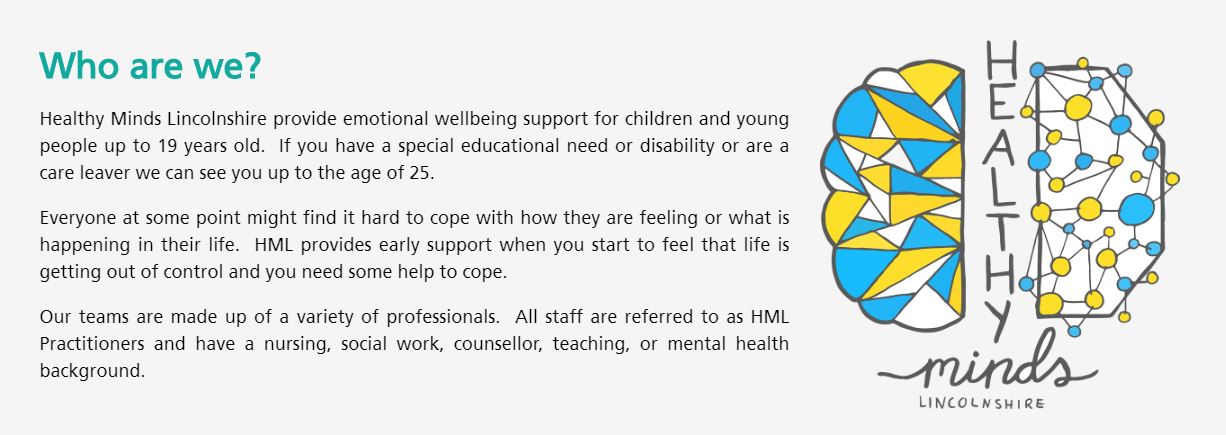
.JPG)
Maintaining Positive Behaviour in the Home
Regulation cards for home
Resources:
Sensory Processing
Coping with COVID - Isolation Booklet
Take 5 - Breathing exercises for children
Childline - Calm Zone
Parents'Toolkit - SEND
CAMHS Resources
Healthy Minds Lincolnshire - Colour Breathing
SEND Weblinks for home learning
Pandemics and the Coronavirus - Social Story
Alphabet Arc
Autism Self-Isolation Guidance for Parents
Resources to support children with Dyslexia and literacy difficulties:
Dyslexia Outreach Parent Workshop 29.02.24
Supporting Literacy parent sheet Jan 2022
Practising Spellings at Home booklet
Paired Reading Jan 2022
Click on the Calibre Audio logo for the free audiobook site: 
Young Carers - Westfield Warriors
Our Young Carers champions are Miss Denton, Mrs Humphreys and Mrs Pinchin. They can be contacted via the year group email address or vis the school office.
Young Carers definition
A young carer is a person under 18 who looks after someone in their family or a friend who is ill, disabled, or has a mental health problem or an addiction.
Caring can include:
● Shopping, cooking, cleaning.
● Managing medicines or money.
● Providing personal care.
● Helping get people out the house.
● Keeping an eye on someone.
● Providing emotional support
As many as one in five pupils in the UK could be a young carer.
Often these children are caring for relatives without their teachers’ knowledge, slipping through the net, undetected by support services. The caring role they carry out means they have unique experiences and demands that impact on their capacity to enjoy and achieve at school.
How to identify a Young Carer
What to look out for….
Is the young person…
- Often late or absent from school with little explanation.
- Falling behind on school or college work, handing in homework late or incomplete.
- Secretive about home life
- Showing signs of poor hygiene or diet
- Displaying disruptive behaviour.
- Talks openly about family health issues.
- Becomes uncomfortable when addressing various health topics.
Are you aware if a young person’s family member...
- Experiences illness, disability, mental ill health or has a history of substance misuse?
- Often misses appointments with school/other professionals?
- Is difficult to engage with or contact the child’s parents/carers?
Our Local Young Carers Services
Groups run monthly for over 8’s and operate in:
· Grantham, 1st Tuesday of each month
· Bourne- 2nd Thursday of each month
· Sleaford- 3rd Monday of each month
· North Hykeham- 4th Monday of each month
Sessions take place from 5:30pm until 7:00pm except Bourne which is 5:15pm until 6:45pm.
Children need a referral to attend these groups. I am happy to do this for them.
Referral email: youngcarers@lincolnshire.gov.uk
Referral phone number: 01522 553275
They also offer a one-off session for ‘mini’ young carers who are under 8. A session during Easter Holidays and Summer Holidays. (Subject to the number of referrals received).
Carers Trust helps young carers to cope with their caring role through specialised services delivered by its network of local carer organisations across the UK. They are independent charities.
Activities offered include:
- Activities and breaks.
- Peer and community support, including young carer groups and peer mentoring schemes.
- Information, advice and guidance, including one-to-one support and age appropriate information.
- Emotional support.
- Advocacy.
- Brokerage and support planning.
- Training in subjects such as health and safety, wellbeing and life skills.
- Supporting families and young carers to apply for appropriate benefits.
- Emergency planning support.
- Whole family support.
- Engaging young carers in informing service development.
In school we meet up twice a term to participate in fun activities and to also discuss any concerns the young carers may have. This is an invite only event for all young carers. There is also a young carers policy available to read which supports young carers and their families. Young Carers Policy











.JPG)

